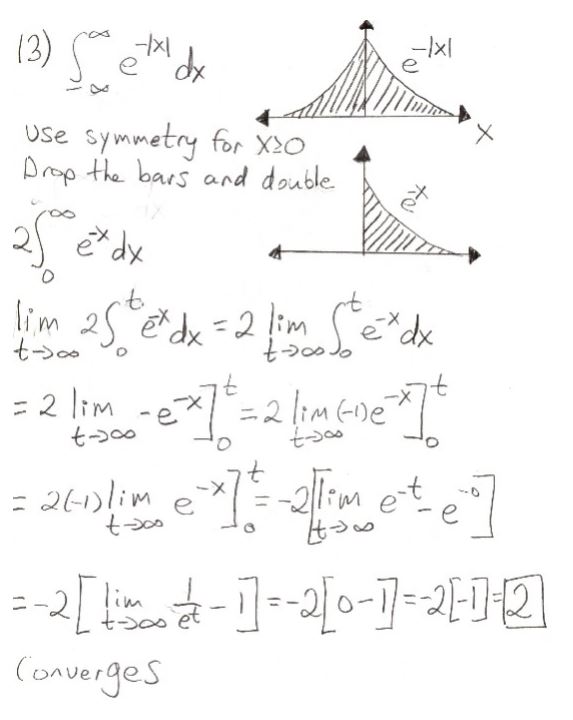
Step 1: Identifying the Function
The function we are interested in integrating is \( f(x) = e^{-|x|} \).
Step 2: Splitting the Integral
Since the function involves an absolute value, we split the integral into two parts:
\[ \int_{-\infty}^{0} e^x \, dx + \int_{0}^{\infty} e^{-x} \, dx \]
Step 3: Applying Limits
Both integrals are improper, so we use limits to evaluate them:
\[ \lim_{{a \to -\infty}} \int_{a}^{0} e^x \, dx + \lim_{{b \to \infty}} \int_{0}^{b} e^{-x} \, dx \]
Step 4: Evaluating the Integrals
The antiderivative of \( e^x \) is \( e^x \) and the antiderivative of \( e^{-x} \) is \( -e^{-x} \).
Step 5: Applying the Upper and Lower Limits
We apply the upper and lower limits to the antiderivatives:
\[ [e^x]_{a}^{0} + [-e^{-x}]_{0}^{b} \]
Step 6: Evaluating the Limits
After applying the limits, we find:
\[ (1 – 0) + (0 – (-1)) = 1 + 1 = 2 \]
Step 7: Final Result
The value of the integral is \( 2 \).
